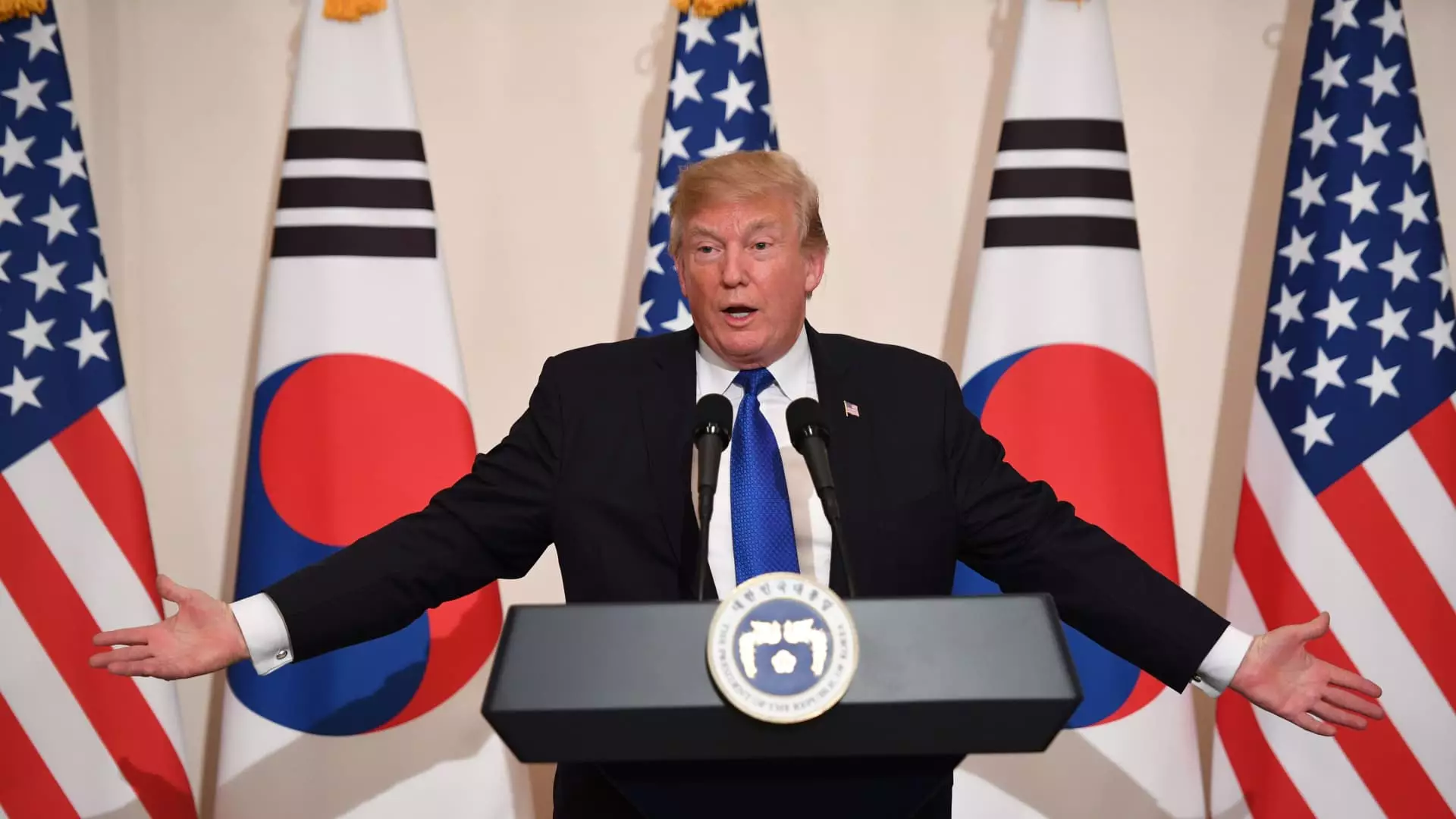The recently announced U.S.-South Korea trade agreement appears at first glance to be a strategic win, yet beneath the surface lies a narrative riddled with contradictions and questionable motives. While the spectacle of a “full and complete” deal is presented as a diplomatic triumph, a critical perspective reveals that it largely consolidates corporate interests under the guise of national prosperity. The negotiated tariffs—reduced from a threatening 25% to a still significant 15%—are a concession that favors certain American industries but does little to address the broader economic inequalities and long-term sustainability concerns that plague global trade policies today.
The prominent focus on trade figures, such as the $350 billion investment fund, is more a PR stunt than an effective blueprint for mutual growth. The emphasis on ensuring that “90% of profits” from this fund benefits the American people smells of ideological pandering, as the real impact remains uncertain. It is doubtful that such a financial arrangement genuinely prioritizes workers or small businesses in both nations. Instead, it risks serving as a lifeline for corporations intent on maximizing profits, with minimal regard for the integrity of labor standards, environmental safeguards, or fair competition.
The Illusion of Mutual Benefit and Hidden Geopolitical Agendas
While President Lee Jae-myung underscores the supposed principle of mutually beneficial outcomes, the underlying dynamics tell a different story. The $150 billion dedicated to shipbuilding cooperation and other sectors hints at a strategic expansion that favors heavy industry and technological sectors already dominant in Korea. It’s a classic case of economic carrots dangling in front of a strategic stick — the deal is as much about reinforcing geopolitical alliances as it is about economic exchange.
Moreover, framing the agreement as a “partnership” conveniently downplays the inherent asymmetries embedded within. South Korea’s negligible tariff rate (just 0.79%) already suggests a pre-existing favorable position, yet Seoul agrees to further concessions under the promise of future investment and energy exports. This raises troubling questions about whether the deal genuinely seeks balanced reciprocity or primarily aims to cement U.S. dominance in critical industries like semiconductors and energy.
The narrative conveniently sidesteps the reality that these arrangements may further entrench economic dependencies, making South Korea increasingly susceptible to American geopolitical priorities rather than equal partnership. That the White House touts “diplomacy centered on national interest” smacks of duplicity, as the real interest appears to be consolidating U.S. economic hegemony and securing corporate profits at the expense of genuine sovereignty.
The Risks of a Lopsided, Profit-Driven Global Economy
At its core, this trade deal exposes the flaws of a system heavily favoring economic elites. The emphasis on investment figures, such as the $100 billion of LNG and energy exports, sounds promising but obscures the fact that the benefits are likely to accrue disproportionately to a handful of multinational corporations rather than ordinary workers. Conflating large sums with broad social benefit is a common tactic to mask the deep inequalities built into contemporary trade agreements.
Furthermore, the political optics of leaders emphasizing “mutual benefits” can serve as a smokescreen for policies that perpetuate an unequal global order. South Korea’s strategic industries—shipbuilding, semiconductors, biotech—are vital, but they should flourish within a framework that emphasizes fair wages, environmentally sustainable development, and genuine technological sovereignty. Instead, the deal resembles a strategic chess move aimed at reinforcing American dominance, with Korea’s economic gains seemingly secondary to geopolitical positioning.
Arguably, such agreements further fuel the cycle of globalization that prioritizes corporate profits and national security over social well-being and ethical considerations. As the global economy becomes increasingly volatile and unequal, these deals threaten to deepen social fissures—not bridge them. It is time to critically question whether trade policies dictated by elite interests reflect the true needs of the everyday worker and the planet, or if they simply serve as instruments of imperial economic expansion dressed up as diplomacy.


Leave a Reply